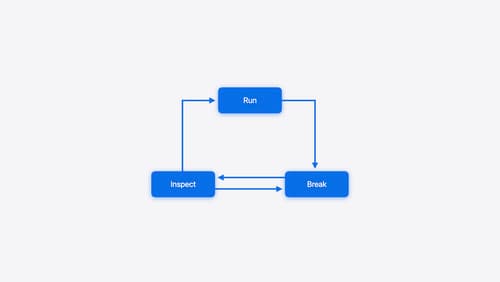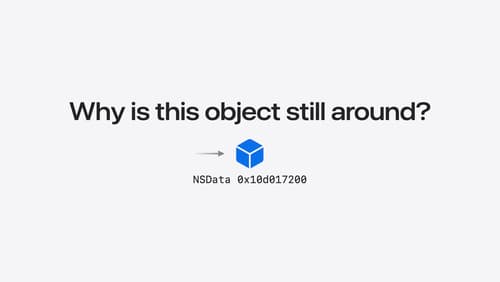string share refference
Asked on 2024-09-06
1 search
The concept of "string share reference" isn't directly mentioned in the provided context. However, the context does discuss references in Swift, particularly in relation to memory management and reference types.
In Swift, reference types like classes allow for shared mutable state. When you assign one reference type to another, you are copying the reference, not the object itself, which is known as a shallow copy. This means both references point to the same object in memory. This is discussed in the session Consume noncopyable types in Swift.
Additionally, the session Explore Swift performance explains how Swift manages memory allocations with reference counting, which involves incrementing and decrementing the reference count to manage the lifetime of objects.
If you have a specific question about how references work in Swift or need more details on a particular topic, feel free to ask!

Run, Break, Inspect: Explore effective debugging in LLDB
Learn how to use LLDB to explore and debug codebases. We’ll show you how to make the most of crashlogs and backtraces, and how to supercharge breakpoints with actions and complex stop conditions. We’ll also explore how the “p” command and the latest features in Swift 6 can enhance your debugging experience.

Analyze heap memory
Dive into the basis for your app’s dynamic memory: the heap! Explore how to use Instruments and Xcode to measure, analyze, and fix common heap issues. We’ll also cover some techniques and best practices for diagnosing transient growth, persistent growth, and leaks in your app.

A Swift Tour: Explore Swift’s features and design
Learn the essential features and design philosophy of the Swift programming language. We’ll explore how to model data, handle errors, use protocols, write concurrent code, and more while building up a Swift package that has a library, an HTTP server, and a command line client. Whether you’re just beginning your Swift journey or have been with us from the start, this talk will help you get the most out of the language.
